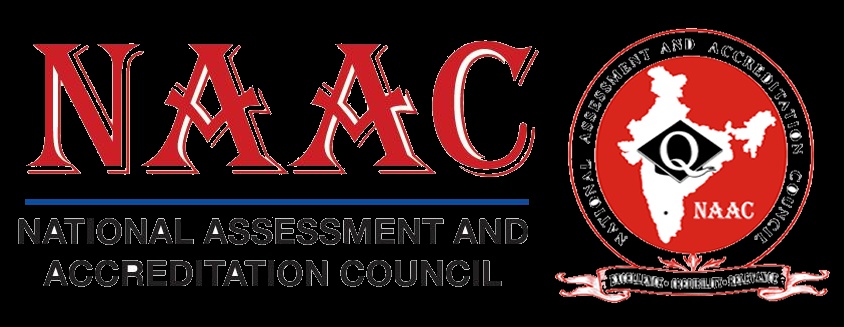Engineering is often regarded as one of the most popular subjects of study in India. Engineering graduates are in great demand in the employment market, and the profession contributes significantly to the country's economy and prosperity. The purpose of this blog is to highlight the significance of engineering studies in India, the most popular engineering streams, and how the NAAC ranking may assist in choosing the finest engineering institutions in India.
Importance of Engineering Studies in India
In India, the need for engineering degrees is always growing. According to the All India Council for Technical Education (AICTE), India has over 10,000 engineering institutes that graduate over 1.5 million engineers each year. This figure is anticipated to become much higher in the future years.
Engineering is also seen as an important economic and development engine in the country. The Indian government recognizes the value of engineering and has made considerable investments in the field. The National Strategy on Education 2020 intends to deliver high-quality engineering education that can satisfy the expectations of the 21st-century workforce.
Moreover, engineering is critical in tackling India's socioeconomic concerns. Engineers work on technology and solutions to challenges such as water shortages, energy efficiency, and climate change. The government has recognized engineering's potential in addressing these challenges and has launched initiatives such as the National Solar Mission and the Smart Cities Mission to capitalize on engineers' expertise.
Popular Streams of Engineering in India
Various engineering fields are popular among students in India. The most common fields include computer science, mechanical engineering, civil engineering, electronics engineering, and electrical engineering.
- Computer Science Engineering (CSE) is the most popular engineering discipline in India. CSE is concerned with the design, development, and upkeep of computer software and hardware. Graduates in this discipline can find work in software development, information technology services, and e-commerce.
- Mechanical engineering (ME) is concerned with the design, fabrication, and upkeep of machines, engines, and mechanical systems. ME graduates can work in the automotive, aerospace, and manufacturing industries.
- Civil engineering (CE) is concerned with the planning, design, and construction of infrastructure such as roads, bridges, buildings, and water supply systems. CE graduates can work in the construction, real estate, and infrastructure development industries.
- The design and development of electronic devices and systems is the focus of electronics engineering (EE). Electrical engineering graduates can find work in the telecommunications, consumer electronics, and semiconductor sectors.
- Electrical engineering (EE) is the study of the design, development, and upkeep of electrical systems. Graduates of ECE programs can find work in the electricity production, transmission, and distribution industries.
NAAC Ranking for Engineering Colleges in India
The National Assessment and Accreditation Council (NAAC) is a self-governing agency in India that analyzes and accredits higher education institutions. The NAAC certification procedure is based on several criteria, including curriculum design, teaching and learning, research, and infrastructure.
The NAAC also ranks colleges and universities based on their overall performance. The rating method uses the same criteria as the accreditation procedure. Institutions are graded on a scale of A++ to D, with A++ being the highest.
The NAAC rating system evaluates engineering institutions in India objectively. The ranking system is based on a thorough assessment procedure and offers students a clear and dependable way to evaluate colleges.
How NAAC Ranking Can Help in Identifying the Best Engineering Colleges in India
While choosing an engineering institution, students might benefit from NAAC rankings. The following are some of the advantages of utilizing the NAAC rankings as a guide:
Objective evaluation: The NAAC rating system evaluates universities objectively. The rating is based on metrics that evaluate the institution's overall performance, including teaching and learning, research, and infrastructure. The ranking system offers a straightforward and dependable approach to evaluating universities.
Accreditation status: The NAAC accreditation procedure is also beneficial to pupils. NAAC-accredited institutions have satisfied specific quality requirements in their educational programs.
Accreditation: It can assure students that the institution provides a high-quality education.
Comparison: Institutions can be compared using NAAC rankings. Students can use the ranking system to compare the performance of other universities based on the same characteristics. This can assist students in making educated judgments while choosing an engineering institution.
Tips for Students Using NAAC Rankings to Select an Engineering College
Here are some pointers to help students make the most of the NAAC rankings while choosing an engineering college:
Look beyond the ranking: While choosing an engineering institution, NAAC ranking is only one element to consider. Other things to consider are the college's location, program options, and faculty competence.
Understand the parameters: The factors utilized in the ranking system should be understood by students. This can help them comprehend why a certain college achieved a particular ranking.
Research the institution: Students should conduct more research on the institution in addition to the rating. To get a better grasp of the college, they could visit its website, read student evaluations, and speak with current students.
Consider the accreditation status: Students should also evaluate the institution's accreditation status. NAAC-accredited institutions have satisfied specific quality requirements in their educational programs.


No comments yet